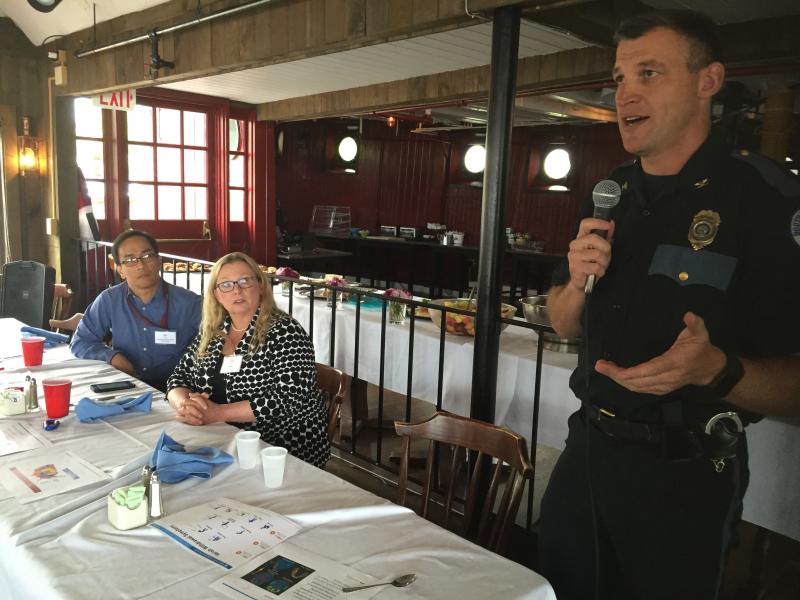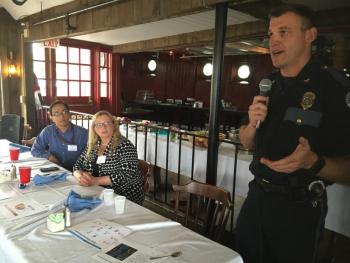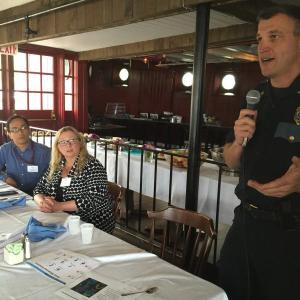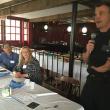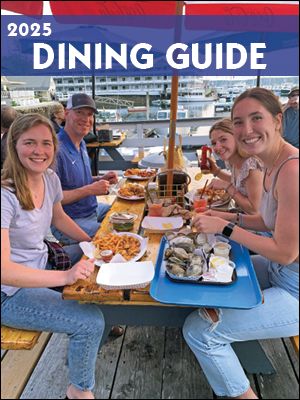Collaborative effort of law, medical, social services provides hope for those battling addiction
Boothbay Harbor Police Chief Bob Hasch realized two years ago, he wasn’t doing his job if all he did was enforce the law regarding those battling substance abuse and addiction. Hasch has worked in law enforcement for 24 years, but he came to the realization there must be a better way than simply incarcerating those battling drug and alcohol addictions.
The chief began an outreach program with his department encouraging those battling addiction to seek help. The department began communicating with those suspected of having substance abuse problems about local resources available for breaking their addictions. He believed the approach would create hope for a happier, healthier life for those battling addiction.
‘Over time, I realized if I’m responding to crime and not looking at the underlying problem then I’m not doing my job,” Hasch said.
This led him to start asking more questions and writing fewer citations. He began learning more about drug addiction, especially the growing opiate and heroin problem. His efforts began showing results as those battling addiction began seeking help, as did family members worried about their loved ones’ long term future, and employers concerned about their workers’ health.
“I started bothering people asking their advice about what services were available locally for helping people battling addiction in reclaiming their lives. Two of those people were Holly Stover and Dr. Alamo,” he said.
Hasch’s actions eventually turned into a collaborative effort within the community to provide addicts a network of resources to aid their recovery. Hasch along with Addiction Outreach Specialist Holly Stover of the Boothbay Region Community Resource Council and Dr. Aqui Alamo discussed the effort’s successes during a community luncheon May 25 at the Tugboat Inn.
The event was sponsored by the BRCRC and Coulombe Center on Health and Wellness, Boothbay Harbor Police Department and Boothbay Harbor Region Chamber of Commerce. The speakers focused on how those in the program are regaining their lives and becoming productive citizens. The speakers also reported finding employment was a critical part of an addict’s recovery.
Stover said many people in the program are looking for a simple job as part of their re-entry into the workforce.
“I just need a recovery job nothing big or high tech. I just want something physical and time-consuming,” said Stover, retelling her clients’ preferences as she assists them in finding work. Stover also helps those navigating the state’s and local general assistance programs. She also recommends various medical programs and addiction support groups.
A key step in recovery is breaking the hold opiates and other highly addictive drugs have on the body. Locally, Alamo counsels patients on using suboxone, a drug used in the earliest stages of recovery as an opiate replacement medication.
Those in recovery also have other programs available providing support in breaking free of addiction. The Boothbay Region Community Center provides a weekly support group as an alternative to a 12-step program. Local Clinician Lisa Carbone of Maine Behavioral Health Services works at the St. Andrews campus providing services with a primary care practice and works with Alamo as well, according to Stover.
There is another community resource Hasch uses in seeking answers to helping those in recovery. He will consult with those who have already used local resources in seeking their own sobriety.
“There are about 15 people who I consult that have been through the recovery program. They provide insight into what is going on in somebody’s life and serve as sort of my brain trust,” he said.
The program is entirely voluntary. Those battling addiction must want to help themselves for the program to benefit them and society, according to Hasch. “We recommend rehab and therapy, but this is something they have to want to do.”
Regional Representative Chris Rector for U.S. Sen. Angus King (I - Maine) attended the luncheon. Rector, who covers the Sheepscot Valley to Calais, praised the local program for its innovation and success. “The senator sees addiction as the biggest threat to society since he’s lived in Maine. I’ve heard about a lot of programs in the five counties I cover, and this one is the best,’ Rector said.
The BRCRC hired Stover in October as part of a three-year pilot program. The council is seeking donations to continue funding the position. BRCRC estimates it takes $175,000 to operate the program for three years.
Event Date
Address
United States

